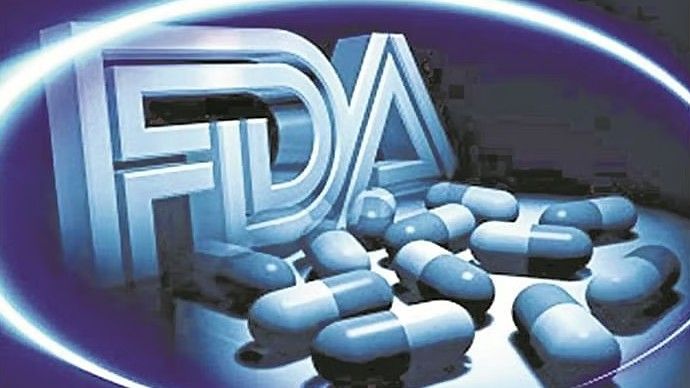
Palghar: The Union health ministry has stopped operations and production of Aveo Pharmaceuticals Ltd. (Aveo) following reports that the company had been exporting unapproved drug combinations containing Tapentadol and Carisoprodol to certain West African nations.
The Ministry clarified that this combination is not approved in India, noting that neither Tapentadol nor Carisoprodol are listed under the Narcotic Drugs and Psychotropic Substances (NDPS) Act in India.
“While both Tapentadol and Carisoprodol are individually approved by the Central Drugs Standard Control Organization (CDSCO) in India, with Tapentadol available in tablet forms of 50, 75, and 100 mg, as well as extended-release tablets of 100, 150, and 200 mg, their combination remains unapproved”, it said.
The ministry revealed that a joint team from CDSCO and the State Regulatory Authority conducted an audit of Aveo between February 21 - 22, 2025. The findings led to a Stop Activity Order, halting all operations at the company’s premises.
According to an FDA official, "The FDA has issued a closure notice to the company. Legal proceedings will be handled by both state and central FDA authorities. The company is currently being interrogated."
The audit also resulted in the seizure of raw materials, in-process materials, and finished products, including approximately 1.3 crore tablets/capsules and 26 batches of Active Pharmaceutical Ingredients (APIs) for Tapentadol and Carisoprodol. These products were detained to prevent their further distribution.
Additionally, the Maharashtra FDA issued a Stop Production Order on February 22, 2025, halting the manufacturing of the illicit drug combinations.
On February 23, the Ministry instructed all State Drugs Control Authorities and Zonal Offices to immediately withdraw the Export NOCs and Manufacturing Licenses granted for any combination of Tapentadol and Carisoprodol.
Communications have also been sent to Customs offices at notified ports, directing them to route these consignments through CDSCO Port offices. An export consignment of Tapentadol 125 mg + Carisoprodol 100 mg, bound for Ghana, has been placed on hold at Mumbai Air Cargo pending further investigation.
To ensure such issues do not recur, CDSCO is updating its Export NOC checklist. The revised checklist will require either a Product Registration Certificate from the importing country’s National Regulatory Agency (NRA) or approval from the Indian Regulatory Authority (CDSCO) for all medicines being exported from India.
This update is aimed at addressing the root cause of the issue and ensuring smooth and legitimate pharmaceutical exports while strictly controlling potential illegal practices.
The Government has emphasized its zero-tolerance policy towards the illegal export of unapproved and potentially harmful drugs, stressing its commitment to maintaining the integrity of the global healthcare supply chain.
How the case came to light
The case emerged following an investigative report by BBC, which uncovered the sale of Aveo-branded combination medicines in markets across Ghana, Nigeria, and Ivory Coast. As part of the investigation, BBC sent an undercover operative posing as an African businessman looking to supply opioids to Nigeria.
The operative gained access to one of Aveo Pharmaceuticals' warehouse in India, where they filmed Aveo's director, Vinod Sharma, showcasing the very same dangerous products that were later found for sale across West Africa.
These drugs, known for their addictive properties, pose significant health risks, including breathing difficulties, seizures, and potentially fatal overdoses. Despite their dangers, they are widely popular on the streets of West African countries due to their low cost and easy availability.
Publicly available export records revealed that Aveo Pharmaceuticals, alongside its sister company Westfin International, had shipped millions of these tablets to Ghana and other West African countries, even though the combination is not licensed for use anywhere globally.
In the secretly recorded footage, the operative tells Sharma about his plan to sell the pills to teenagers in Nigeria, remarking that "they all love this product." Towards the end of the conversation, Sharma acknowledges the product's harm, saying, "This is very harmful for the health," but adds, "Nowadays, this is business."
The documentary also focuses on a drug rehabilitation center in Nigeria where patients addicted to these opioids live in appalling conditions with their legs chained together, sleeping on the floor with no running water.
In Tamale, Ghana, local city chief Alhassan Maham has created a citizens' task force of 100 volunteers whose mission is to raid and arrest the drug dealers and take these illegal opioids off the streets. But the problem is: India is manufacturing them faster than they can do that.
Aveo Pharmaceuticals Denies Allegations
Meanwhile, Aveo Pharmaceuticals has vehemently denied allegations made by the BBC that it was involved in exporting opioids to West Africa.
"In response to the allegations made against us in the BBC film dated 21st February 2025, we categorically deny all claims. The allegations against us are entirely baseless and without merit. We have always adhered to the rules and regulations set by various regulatory authorities to manufacture and export our products," a company spokesperson stated.
Aveo claims that "Tafrodol," their registered trademark containing Tapentadol and Carisoprodol, is licensed by the State FDA and exported with necessary NOCs from the ADCs and a CDSCO export license.
The company further alleges that it is not the only manufacturer of this combination product in India, and that others are unlawfully using their brand name and logo. They have filed multiple legal cases currently before the High Court. Aveo also claims that the manufacturing code of the "Tafrodol" blister shown in the BBC report does not match their factory's code, indicating it was made by another company.
Aveo Pharmaceuticals has stated that they are fully cooperating with government authorities and providing all necessary documentation for the investigation.